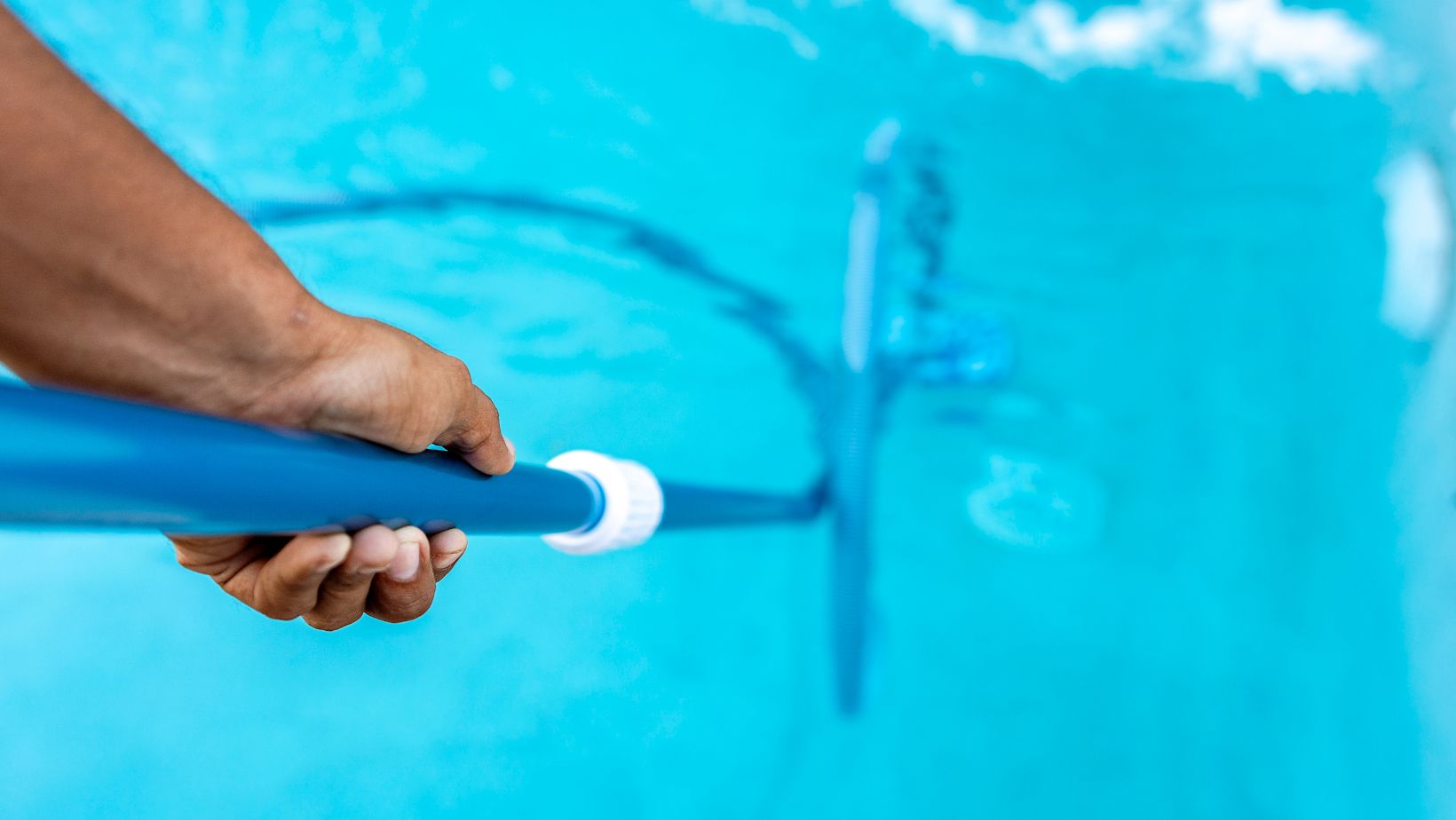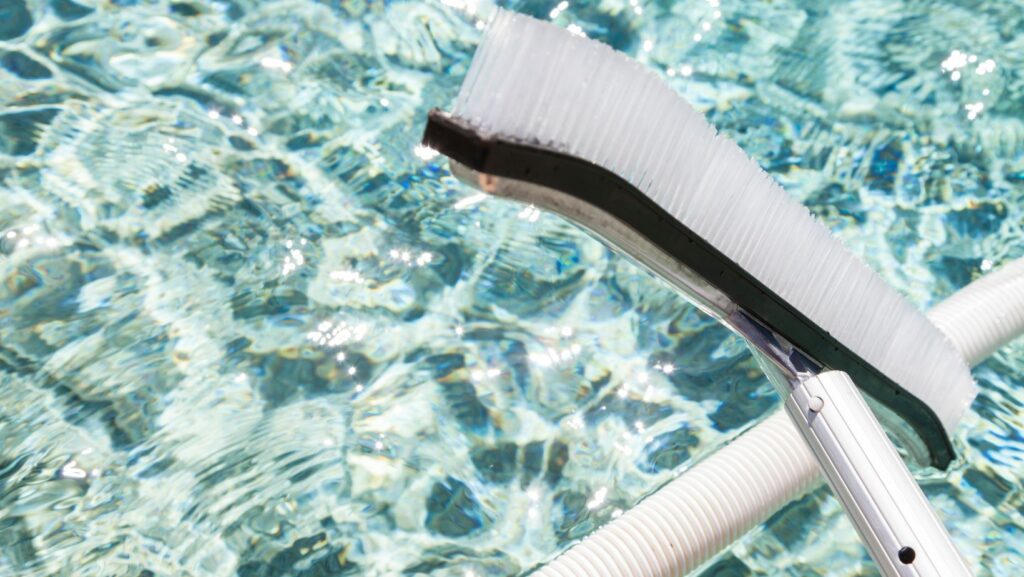Firstly, regular maintenance is key. By maintaining proper water chemistry and filtration, you can significantly reduce the amount of sand entering your pool. Ensure that your pH levels are balanced and use an appropriate filter media to effectively trap debris.
Secondly, consider using a skimmer sock or net. These handy tools can catch larger particles like sand before they make their way into your pool’s filtration system. Simply attach the skimmer sock or net to the skimmer basket and let it do its job in keeping unwanted sand at bay.
Lastly, pay attention to landscaping around your pool area. If there are sandy areas nearby or if windblown sand is a common occurrence, take measures to minimize its impact on your pool. Installing windbreaks or barriers can help reduce the amount of sand that finds its way into the water.
Table of Contents
ToggleHow To Get Sand Out Of Pool Without Vacuum
Sand getting into the pool can be quite frustrating, but understanding why it happens can help you prevent it from occurring in the first place. Here are a few reasons why sand finds its way into your pool:
- Worn-out or damaged filter sand: Over time, the sand in your pool filter can become worn out or damaged, allowing small particles to escape and enter your pool. This is especially common if the filter hasn’t been properly maintained or if it’s past its recommended lifespan.
- Inadequate filtration system: If your pool’s filtration system is undersized for its volume or not functioning optimally, it may struggle to effectively capture and remove fine particles like sand. This can lead to a buildup of sand in your pool.
- Improper backwashing technique: Backwashing is an essential maintenance step for cleaning your pool filter. However, if not done correctly, it can actually push sand back into the pool instead of removing it. Make sure you follow the manufacturer’s instructions on how to properly backwash your specific filter type.
- Heavy rain or windstorms: Strong winds and heavy rainfall can carry debris such as dirt and sand into your pool area, causing them to end up in the water itself.
- Faulty plumbing connections: Leaks or loose fittings in your plumbing system could allow sand from surrounding soil or gravel beds to infiltrate your pool through cracks or gaps.
Preventing sand from entering your pool requires taking proactive measures to address these underlying causes:
- Regularly inspect and replace worn-out filter sand according to manufacturer recommendations.
- Ensure that you have an appropriately sized filtration system capable of handling the volume of water in your pool.
- Follow proper backwashing techniques provided by the manufacturer.
- Consider using a leaf net cover during periods of heavy wind or rainfall.
- Inspect and maintain all plumbing connections regularly to prevent leaks or dislodged fittings.

The Impact of Sand in the Pool
- Clogged Filters: One of the major consequences of having sand in your pool is clogged filters. As sand particles make their way through the water circulation system, they can accumulate in filters, causing reduced water flow and decreased efficiency. This not only affects the overall performance of your filtration system but also leads to increased maintenance requirements.
- Poor Water Clarity: Sand particles suspended in water can result in cloudy or murky pool water. Not only does this detract from the visual appeal of your pool, but it also makes it difficult to see clearly while swimming. Additionally, cloudy water may indicate an imbalance in chemical levels or inadequate filtration.
- Damaged Pool Equipment: Over time, continuous exposure to sand can cause damage to several components of your pool equipment. Abrasive particles can wear down pump impellers, seals, and other moving parts, leading to costly repairs or replacements.
- Skin Irritation: Swimmers coming into contact with sandy water may experience skin irritation or discomfort due to abrasive action. The presence of rough particles can cause itching and redness, making swimming a less pleasant experience for everyone involved.

